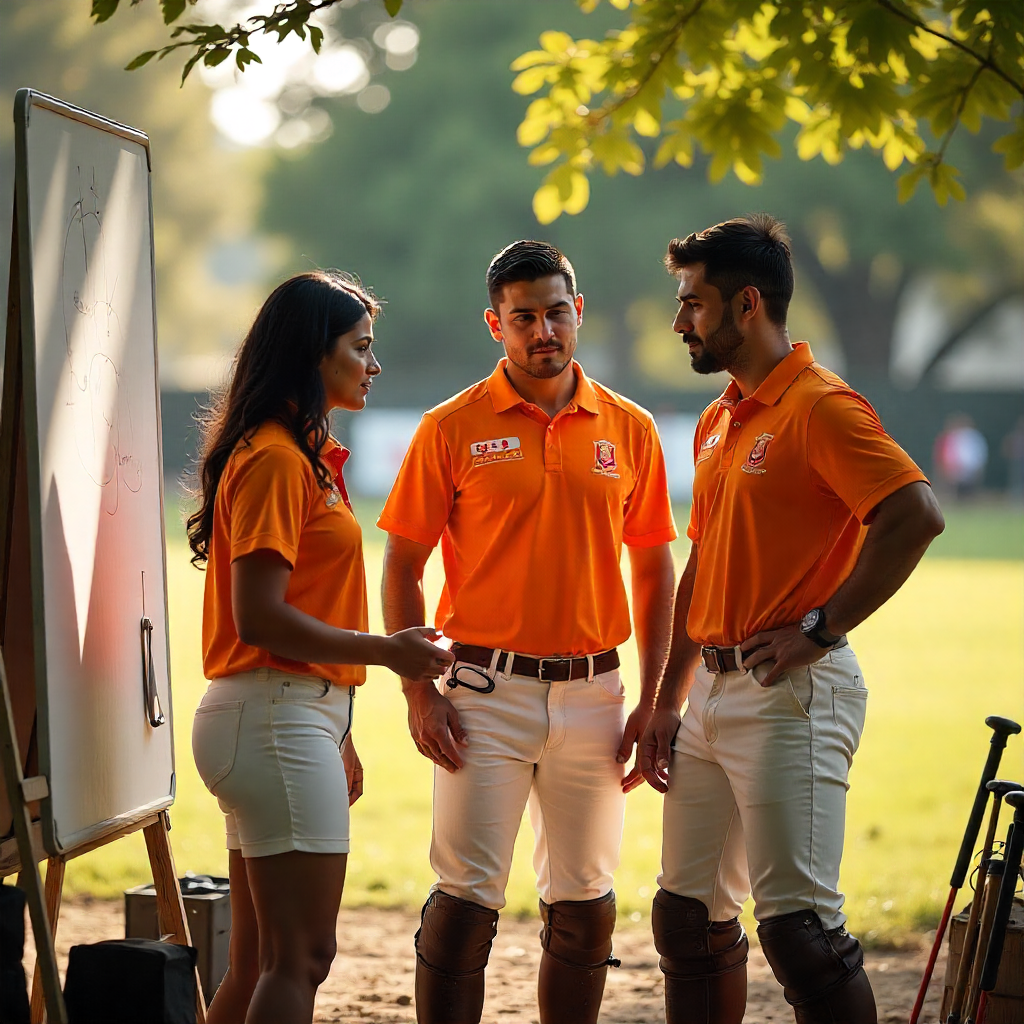Managing a successful polo team requires a blend of strategic planning, effective communication, and a deep understanding of both the sport and the horses. Here are some key steps to help you manage a good polo team:
1. Assemble a Skilled Team
- Recruit Talented Players: Look for players with strong riding skills, good hand-eye coordination, and a strategic mindset. It’s essential to have a mix of experienced players and promising newcomers.
- Assign Roles: Each player should have a clear role based on their strengths. Polo positions include Number 1 (offensive), Number 2 (midfield), Number 3 (playmaker), and Number 4 (defensive).
2. Training and Conditioning
- Regular Practice: Schedule regular training sessions focusing on riding skills, ball control, and team strategies. Incorporate drills that simulate match conditions.
- Physical Fitness: Ensure players maintain high fitness levels. Polo is physically demanding, requiring strength, endurance, and agility.
- Horse Training: Horses, or ponies, are crucial to the game. They need to be well-trained, fit, and responsive. Work closely with a skilled horse trainer to keep them in top condition.
3. Team Strategy and Tactics
- Develop Game Plans: Create strategies for different match scenarios. This includes offensive plays, defensive setups, and quick transitions.
- Analyze Opponents: Study the strengths and weaknesses of opposing teams. Adjust your game plan accordingly to exploit their vulnerabilities.
4. Effective Communication
- On-Field Communication: Encourage clear and concise communication among players during matches. This helps in coordinating plays and making quick decisions.
- Team Meetings: Hold regular meetings to discuss strategies, review past performances, and address any issues. Foster an environment where players feel comfortable sharing their thoughts and feedback.
5. Horse Care and Management
- Veterinary Care: Regular check-ups and prompt medical attention are vital to keep the horses healthy.
- Nutrition and Rest: Ensure the horses have a balanced diet and adequate rest. Overworking them can lead to injuries and decreased performance.
6. Logistics and Administration
- Organize Matches and Tournaments: Efficiently manage the scheduling of matches and participation in tournaments. Ensure all logistical aspects, such as travel and accommodation, are well-planned.
- Budget Management: Keep a close eye on the budget. Polo can be an expensive sport, so it’s important to manage finances wisely, including expenses for equipment, horse care, and travel.
7. Foster Team Spirit
- Build Camaraderie: Encourage team-building activities off the field. A strong bond among players can translate into better coordination and performance during matches.
- Positive Environment: Create a supportive and positive environment. Recognize and celebrate achievements, and provide constructive feedback to help players improve.
By focusing on these aspects, you can effectively manage a polo team that is not only competitive but also cohesive and motivated. Remember, the key to success lies in balancing the technical, physical, and emotional elements of the game.

